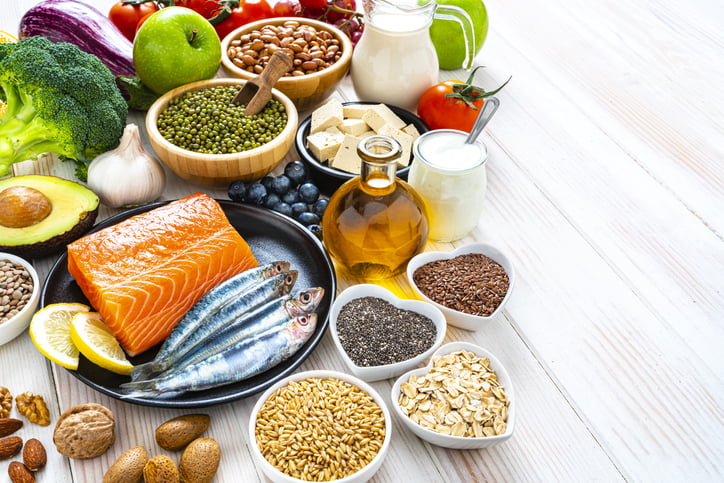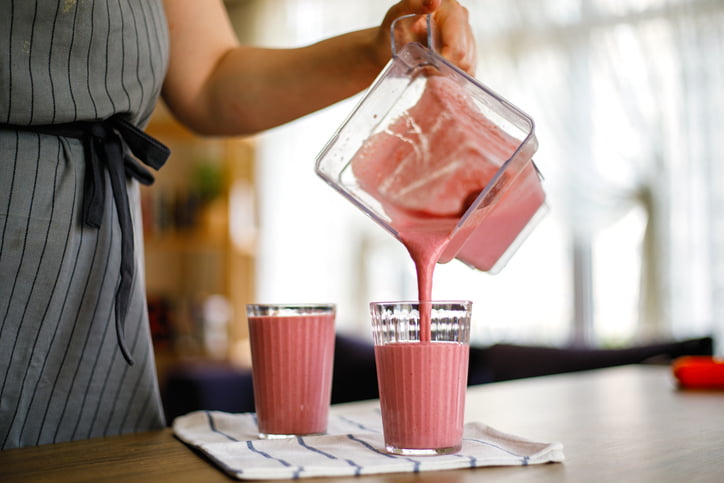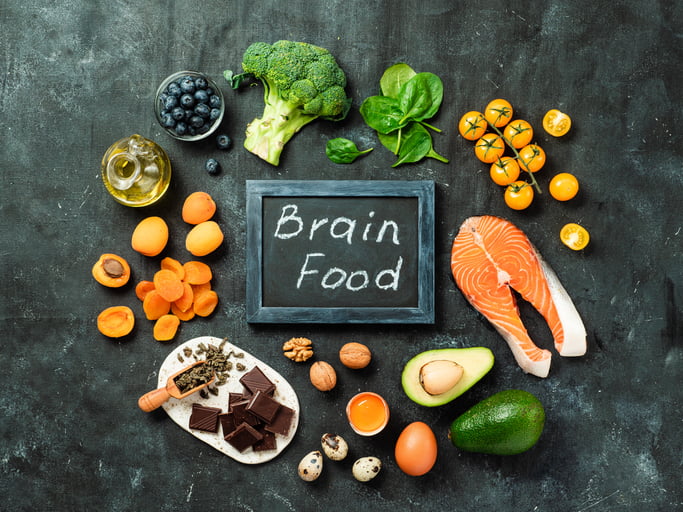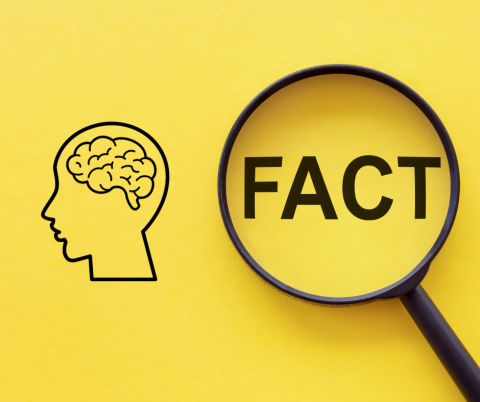The foods you eat play a surprising role in your brain health. It’s true! Just like your body needs the right fuel, so does your brain. Let’s dive into the world of brain-boosting foods and discover how they can help you think clearer, remember more, and focus better.
Ever wished you could supercharge your brain? Well, you might be closer than you think. What you eat can dramatically impact your memory, focus, and overall brain health. It’s like giving your brain the ultimate power-up!
Let’s dive into the world of brain-boosting foods. We’ll explore what makes them special, how they work, and which ones are best for you. Get ready to nourish your mind and unlock your full potential!
What are the Best Foods for Memory and Focus?
Your brain is a complex organ that needs the right fuel to function optimally. Certain foods are packed with nutrients that support brain health and cognitive function. These powerhouse brain-boosting foods can help improve your memory, boost your focus, and even protect your brain from age-related decline.
What are the 12 Brain-Boosting Foods?
- Fatty Fish: Packed with omega-3 fatty acids, which are essential for brain health. Salmon, tuna, and mackerel are excellent choices.
- Berries: These tiny powerhouses are loaded with antioxidants that protect your brain cells. Blueberries, strawberries, and raspberries are top picks.
- Nuts and Seeds: Rich in healthy fats, vitamins, and minerals, nuts and seeds are a brain-friendly snack. Almonds, walnuts, chia seeds, and flaxseeds are great options.
- Whole Grains: Provide sustained energy and essential nutrients for brain function. Brown rice, quinoa, and whole-wheat bread are good choices.
- Avocados: Packed with healthy fats and antioxidants, avocados support brain health and improve cognitive function.
- Eggs: A great source of protein, choline, and B vitamins, which are essential for brain health.
- Dark Leafy Greens: Loaded with vitamins, minerals, and antioxidants, these greens protect your brain and improve cognitive function. Spinach, kale, and collard greens are excellent choices.
- Broccoli: This cruciferous vegetable is rich in vitamin K, which is important for brain health.
- Yogurt: Packed with protein and probiotics, yogurt supports brain health and gut health, which is linked to cognitive function.
- Extra-Virgin Olive Oil: Rich in antioxidants, this healthy oil protects your brain from damage.
- Dark Chocolate: Contains flavonoids, which improve blood flow to the brain and enhance cognitive function.
- Water: Essential for overall health, staying hydrated is crucial for optimal brain function.

What are the 10 Best Brain Boosting Foods?
While all the foods mentioned above are beneficial, some stand out as particularly powerful brain boosters. Here are ten of the best:
- Fatty fish: Salmon, mackerel, and tuna are packed with omega-3 fatty acids, which are essential for brain health.
- Blueberries: These antioxidant-rich berries have been shown to improve memory and cognitive function.
- Walnuts: Packed with omega-3 fatty acids and antioxidants, walnuts support brain health and reduce inflammation.
- Whole grains: Provide sustained energy and essential nutrients for optimal brain function.
- Avocados: This healthy fat powerhouse supports brain health and improves cognitive function.
- Eggs: A complete protein source, eggs provide essential nutrients for brain health.
- Spinach: Loaded with vitamins, minerals, and antioxidants, spinach protects your brain and improves cognitive function.
- Broccoli: This cruciferous vegetable is rich in vitamin K, which is important for brain health.
- Yogurt: Packed with protein and probiotics, yogurt supports brain health and gut health.
- Extra-virgin olive oil: Rich in antioxidants, this healthy oil protects your brain from damage.
What Can I Drink to Improve My Brain Memory?
Thirsty for a brain boost? What you drink can be just as important as what you eat when it comes to enhancing your memory. Let’s explore some refreshing options:
- Water: This might seem obvious, but staying hydrated is crucial for optimal brain function. Dehydration can impair cognitive performance.
- Coffee: Moderate coffee consumption has been linked to improved memory and cognitive function. The caffeine in coffee can enhance alertness and focus.
- Green Tea: Packed with antioxidants, green tea can protect your brain cells and improve memory. It also contains L-theanine, an amino acid that promotes relaxation and focus.
- Fruit Juices: While not a replacement for whole fruits, fruit juices can provide a quick dose of vitamins and antioxidants. However, be mindful of added sugars.
- Smoothies: A blend of fruits, vegetables, and yogurt can be a nutritious and delicious way to boost your brain power.
- Milk: Rich in calcium and vitamin D, milk is essential for brain health. Some studies suggest that it may improve memory and cognitive function.
Remember, moderation is key. While these drinks can offer benefits, it’s important to balance them with plenty of water and a healthy diet.

How Can I Sharpen My Brain Memory?
In addition to a brain-healthy diet, there are several lifestyle factors that can help sharpen your brain memory:
- Regular Exercise: Physical activity boosts blood flow to the brain, which can improve memory and cognitive function.
- Adequate Sleep: Getting enough quality sleep is essential for memory consolidation and brain health.
- Mental Stimulation: Engage in activities that challenge your mind, such as puzzles, games, or learning a new skill.
- Stress Management: Chronic stress can negatively impact memory. Find healthy ways to manage stress, like meditation or yoga.
- Social Interaction: Staying connected with friends and family can help maintain cognitive function.
By incorporating these habits into your lifestyle, you can significantly enhance your brain memory and overall cognitive health.
Which Foods Increase Brain IQ?
Disclaimer: While there’s no magic food that instantly boosts IQ, certain nutrients are essential for optimal brain function. A diet rich in these nutrients can support cognitive health and development.
While the concept of “increasing IQ” through diet alone is complex, certain foods can contribute to better brain health and function. These brain-boosting foods provide essential nutrients like omega-3 fatty acids, antioxidants, and vitamins that support cognitive processes.
- Fatty fish: Packed with omega-3 fatty acids, which are crucial for brain health.
- Berries: Rich in antioxidants that protect brain cells and improve memory.
- Nuts and seeds: Contain healthy fats, vitamins, and minerals essential for brain function.
- Whole grains: Provide sustained energy and B vitamins important for brain health.
- Dark leafy greens: Loaded with antioxidants and nutrients that support cognitive function.
- Eggs: A good source of protein, choline, and B vitamins, essential for brain health.
- Avocados: Contain healthy fats and antioxidants that support brain health.
Remember, a balanced diet is key. While these foods offer significant benefits, they should be part of an overall healthy lifestyle that includes regular exercise, adequate sleep, and mental stimulation.
What Foods Get Rid of Brain Fog?
Brain fog, that annoying mental haze, can be frustrating. Luckily, certain foods can help clear the clouds.
- Omega-3 fatty acids: Found in fatty fish like salmon, mackerel, and tuna, these healthy fats support brain health and reduce inflammation.
- Antioxidant-rich foods: Berries, dark chocolate, and leafy green vegetables are packed with antioxidants that protect brain cells from damage.
- Whole grains: Provide sustained energy and B vitamins, which are essential for brain function.
- Lean protein: Found in chicken, turkey, and beans, protein helps regulate blood sugar levels, preventing energy crashes and brain fog.
- Hydrating foods: Fruits and vegetables with high water content, like watermelon, cucumber, and celery, help keep you hydrated and improve brain function.
Remember, while these foods can help, it’s essential to address other potential causes of brain fog, such as lack of sleep, stress, or underlying health conditions.
What is the Number One Food that Fights Dementia?
Unfortunately, there’s no single “magic food” that can prevent or cure dementia. Dementia is a complex condition with multiple causes. However, certain foods can contribute to overall brain health and may help reduce the risk of cognitive decline.
That said, a diet rich in antioxidants, omega-3 fatty acids, and other essential nutrients is crucial for brain health.
What are the Three Super Foods for Brain Health?
While many foods contribute to brain health, three stand out as true superfoods:
- Fatty fish: Salmon, mackerel, and tuna are packed with omega-3 fatty acids, essential for brain function and structure. These fats help protect brain cells, improve memory, and reduce inflammation.
- Blueberries: These tiny powerhouses are loaded with antioxidants that protect brain cells from damage. Studies suggest they can improve memory and cognitive function.
- Walnuts: Similar to fatty fish, walnuts are rich in omega-3 fatty acids. They also contain antioxidants and other nutrients that support brain health.
What Foods Restore the Brain?
While the brain has an incredible ability to repair itself, certain nutrients can support this process. Foods rich in:
- Omega-3 fatty acids: Found in fatty fish, these help build and repair brain cells.
- Antioxidants: Present in berries, dark chocolate, and leafy greens, they protect brain cells from damage.
- B vitamins: Found in whole grains, lean meats, and eggs, these help convert food into energy for the brain.
- Vitamin D: Essential for brain health and function, found in fatty fish, eggs, and fortified dairy products.
- Zinc: Important for brain communication, found in oysters, red meat, and beans.
Remember, recovery is a gradual process, and these foods should be part of a balanced diet alongside other lifestyle factors like sleep, exercise, and stress management.
What is the Best Brain Food Snack?
Craving a quick brain boost? These snacks can help:
- Nuts and seeds: Packed with healthy fats, protein, and antioxidants, they’re a perfect on-the-go brain food. Almonds, walnuts, chia seeds, and flaxseeds are great options.
- Fruits: Berries are particularly beneficial due to their antioxidant content, but any fruit can provide a quick energy boost.
- Greek yogurt: A good source of protein and probiotics, which support brain health. Add berries or nuts for extra flavor and nutrition.
- Hard-boiled eggs: A protein-packed snack that also provides choline, essential for brain function.
- Hummus and vegetables: This combo offers protein, fiber, and antioxidants, making it a satisfying and brain-healthy choice.
What is Brain Food for Breakfast?
Starting your day with a brain-boosting breakfast is essential for optimal cognitive function. Here are some nutritious options:
- Oatmeal: Packed with fiber and complex carbohydrates, oatmeal provides sustained energy. Top it with berries, nuts, and a drizzle of honey for extra nutrition.
- Eggs: A great source of protein and choline, eggs help improve memory and focus. Enjoy them scrambled, boiled, or as an omelet with vegetables.
- Greek yogurt: Rich in protein and probiotics, Greek yogurt supports brain health. Add fruit, nuts, and honey for a delicious and satisfying breakfast.
- Avocado toast: A trendy and healthy option, avocado toast provides healthy fats, fiber, and vitamins. Add a sprinkle of red pepper flakes for a flavor boost.
- Smoothies: Blend together fruits, vegetables, yogurt, and a protein powder for a quick and nutritious breakfast on the go.
What Three Foods Help with Memory?
While many foods contribute to memory, here are three standouts:
- Fatty fish: Packed with omega-3 fatty acids, crucial for brain health and memory function.
- Blueberries: Loaded with antioxidants that protect brain cells and improve memory.
- Nuts and seeds: Provide healthy fats, vitamins, and minerals that support brain health and memory.
What is the Best Fruit for the Brain?
While many fruits offer benefits for brain health, blueberries often take the spotlight. Packed with antioxidants, they help protect brain cells from damage and improve memory. Other berries like strawberries and raspberries are also excellent choices.
However, it’s important to remember that a variety of fruits is beneficial for overall health, including citrus fruits for vitamin C and tropical fruits for other essential nutrients.
What Foods Enhance Work Productivity and Focus?
A sharp mind is essential for a productive workday. Let’s explore some foods that can help boost your energy and concentration:
- Fatty fish: Omega-3 fatty acids support brain function and reduce inflammation, helping you stay focused.
- Nuts and seeds: Packed with healthy fats, protein, and vitamins, they provide sustained energy and improve concentration.
- Whole grains: Complex carbohydrates provide steady energy levels, preventing energy crashes.
- Dark leafy greens: Loaded with antioxidants and nutrients that support brain health and cognitive function.
- Berries: Antioxidant-rich, they help protect brain cells and improve memory.
- Eggs: A great source of protein and choline, essential for brain function and focus.
- Greek yogurt: Provides protein and probiotics, supporting overall well-being and concentration.
- Coffee: Moderate consumption can enhance alertness and focus.
- Water: Staying hydrated is crucial for optimal brain function and concentration.
Remember, a balanced diet is key. Combine these foods with regular breaks, physical activity, and sufficient sleep for maximum productivity.
What are the 10 Superfoods to Boost Brain Power?
Superfoods are nutrient-packed powerhouses that offer exceptional health benefits. Here are ten to supercharge your brain:
- Fatty fish: Salmon, mackerel, and tuna are rich in omega-3 fatty acids, essential for brain health and function.
- Blueberries: Packed with antioxidants, these berries protect brain cells and improve memory.
- Walnuts: A great source of omega-3 fatty acids and antioxidants, walnuts support brain health.
- Spinach: Loaded with vitamins, minerals, and antioxidants, spinach is a brain-boosting green.
- Avocados: This healthy fat provides essential nutrients for brain health and function.
- Eggs: A complete protein source with choline, crucial for brain health and memory.
- Broccoli: Packed with vitamins and antioxidants, broccoli supports brain function and protects against damage.
- Dark chocolate: Contains flavonoids that improve blood flow to the brain and enhance cognitive function.
- Turmeric: This spice has anti-inflammatory properties and may benefit brain health.
- Chia seeds: Rich in omega-3 fatty acids and antioxidants, chia seeds support brain function and hydration.
Which Vegetables Help the Brain Develop the Best?
Vegetables are packed with essential nutrients that support brain development. Here are some standout options:
- Leafy green vegetables: Spinach, kale, and collard greens are rich in vitamins, minerals, and antioxidants that support brain health and cognitive function.
- Broccoli: Packed with vitamin K, essential for brain health and memory. It also contains compounds that protect the brain from damage.
- Cauliflower: Another cruciferous vegetable, cauliflower provides antioxidants and supports brain function.
- Carrots: Rich in beta-carotene, which converts to vitamin A, essential for eye and brain health.
Sweet potatoes: Provide vitamin A, which is crucial for brain development and function.
What is the Best Food for the Brain?
Various foods contribute significantly to brain health, but a diverse diet is key to overall cognitive well-being. Among these, fatty fish like salmon is often highlighted due to its high omega-3 fatty acid content, which is crucial for brain function. Omega-3s help build brain and nerve cells and are essential for learning and memory. Regular consumption of fatty fish can help improve mental performance and slow cognitive decline.
Which Vegetables Help the Brain Develop the Best?
Leafy green vegetables such as spinach and kale, along with cruciferous vegetables like broccoli and cauliflower, are particularly beneficial for brain development. These vegetables are rich in essential nutrients like vitamin K, lutein, folate, and beta-carotene. These nutrients support brain health by protecting against cognitive decline, improving memory, and promoting overall brain function. Incorporating a variety of these vegetables into your diet can help maintain and enhance cognitive abilities.
What Types of Food Can Improve One’s Memory?
Foods rich in antioxidants, omega-3 fatty acids, vitamins, and minerals can significantly enhance memory. This category includes berries, which are packed with antioxidants that protect the brain from oxidative stress. Fatty fish provides omega-3 fatty acids, essential for brain health. Nuts and seeds offer vitamin E, which has been linked to less cognitive decline as one ages. Leafy green vegetables provide various vitamins and minerals that support brain health, while whole grains supply glucose, the brain’s primary energy source. Together, these foods create a nutrient-rich environment for the brain, supporting memory and cognitive function.
Remember: While these foods offer significant benefits for brain health, they should be part of a balanced diet. It’s important to consult with a healthcare professional for personalized dietary advice tailored to your specific needs. By incorporating a variety of brain-boosting foods into your lifestyle, you can take proactive steps to improve your memory, focus, and overall cognitive health.
A diet rich in nutrients is essential for optimal brain function. Foods like fatty fish (salmon, mackerel), berries (blueberries, strawberries), nuts (walnuts, almonds), green leafy vegetables (spinach, kale), and whole grains provide essential nutrients for brain health.
Many foods contain compounds that support brain function. For example, omega-3 fatty acids found in fish help build brain cells, while antioxidants in berries protect brain cells from damage. Vitamins and minerals in whole grains, nuts, and green leafy vegetables support overall brain health.
Yes, diet plays a significant role in cognitive function. Nutrient-rich foods provide the building blocks for brain cells and neurotransmitters, essential for memory, focus, and learning. Conversely, a poor diet can contribute to cognitive decline.
Water is essential for optimal brain function, as dehydration can impair cognitive performance. Additionally, coffee and green tea contain antioxidants and stimulants that can enhance focus and alertness.
Yes, several snacks can support brain health. Nuts and seeds offer a good source of healthy fats and protein. Greek yogurt provides protein and probiotics, which may benefit gut health and brain function. Fruits like berries are rich in antioxidants.
The effects of brain-boosting foods can vary depending on the individual and the specific nutrient. While some improvements might be noticed within a few weeks of adopting a healthier diet, significant changes in cognitive function often take longer.
While the term “superfood” is often used loosely, certain foods are particularly rich in brain-boosting nutrients. Examples include blueberries, fatty fish, and walnuts. However, a balanced diet incorporating various nutrient-rich foods is generally more beneficial than relying on a single food.
Processed foods high in unhealthy fats, added sugars, and refined carbohydrates can contribute to inflammation and oxidative stress, increasing the risk of cognitive decline. Limiting sugary drinks, red meat, and excessive alcohol consumption is also recommended.
Dehydration can significantly impair cognitive function, leading to difficulties with concentration, memory, and mood. Staying hydrated is crucial for optimal brain performance.
A balanced diet is generally sufficient for most people. However, in some cases, supplements may be recommended. It’s essential to consult with a healthcare professional to determine if supplements are necessary and appropriate.
Remember, individual needs vary. It’s always best to consult with a healthcare professional for personalized dietary advice.




